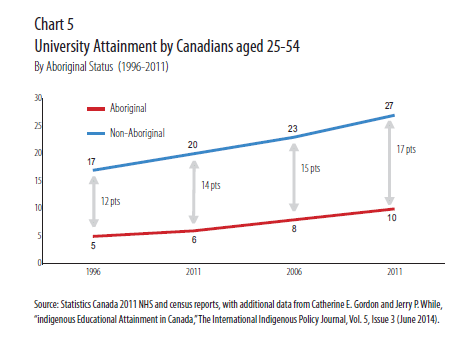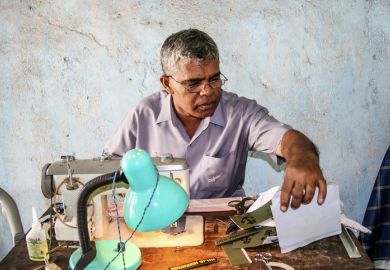The education achievement gap between aboriginal and non-aboriginal people in Canada is getting wider, a study has found.
While the proportion of First Nations, Métis and Inuit people in the country aged between 25 and 54 with a university degree increased by two percentage points from 2006 to 2011 (8 per cent to 10 per cent), the educational attainment of non-aboriginal Canadians improved at a faster rate (23 per cent to 27 per cent), according to research from the Environics Institute.
“Canada deserves its reputation as a world leader in equity in education, but this reputation is tarnished once the situation of aboriginal peoples is considered,” Andrew Parkin, the report's author, said.
“While the education attainment of aboriginal people in Canada is increasing, the achievement gap between aboriginal and non-aboriginal peoples at the higher end of the education attainment spectrum is still getting wider.”

The study also found that while there is no significant achievement gap between immigrants and non-immigrants in the country overall, certain racial groups are less likely to go to university.
More than 80 per cent of second-generation immigrants whose parents came from Africa or China pursue university studies by the age of 21, but only 36 per cent of those from central and southern America and the Caribbean do, the report found.
Register to continue
Why register?
- Registration is free and only takes a moment
- Once registered, you can read 3 articles a month
- Sign up for our newsletter
Subscribe
Or subscribe for unlimited access to:
- Unlimited access to news, views, insights & reviews
- Digital editions
- Digital access to THE’s university and college rankings analysis
Already registered or a current subscriber? Login






